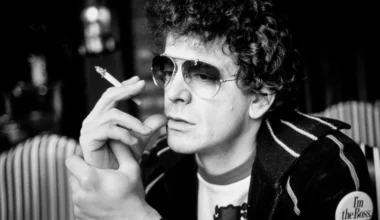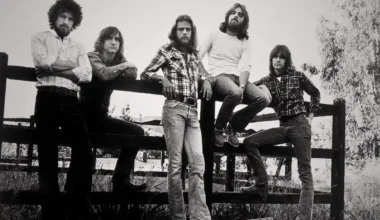Amid their admiration for each other’s work, iconic figures from the 1960s, Bob Dylan and John Lennon, occasionally found themselves entangled in friendly creative disputes and minor conflicts.
Dylan grew familiar with The Beatles during the latter part of the 1960s. Nonetheless, his initial critique emerged after The Fab Four released their 1965 album “Rubber Soul.”
Dylan believed that Lennon had borrowed his distinctive style from the timeless track “Norwegian Wood (This Bird Has Flown).” Shortly after the release of “Rubber Soul,” Dylan expressed his thoughts in an interview with evident bitterness: “What is this? It’s me, Bob. [John’s] doing me! Even Sonny and Cher are doing me, but, darn it, I created it.”
Dylan’s response found its way into the 1966 song “4th Time Around,” which famously took a jab at Lennon with the lyrics: “I never asked for your crutch / Now don’t ask for mine.” This amiable rivalry showed no sign of fading, even spilling into the 1970s following The Beatles’ split.
In 1970, Lennon released his debut solo album, “John Lennon/Plastic Ono Band.” Despite receiving mixed reviews initially, the album is now regarded as one of the finest post-Beatles solo albums, featuring classic tracks like “Working Class Hero,” “Mother,” and “God.”
In “God,” Lennon addresses God as “a concept by which we measure our pain.” As the song progresses, he lists various other beliefs he rejects. While some items on Lennon’s list are understandable, such as Jesus and magic, many of his fans were taken aback by the inclusion of Dylan and Elvis.
In December 1970, Jann Wenner, the founder and publisher of Rolling Stone, interviewed Lennon and Yoko Ono about their new album. When discussing “God,” Wenner inquired, “How did you compile that list in ‘God’?”
Lennon responded, “What’s a list?”
Wenner clarified, “‘I don’t believe in magic,’ that series of statements?”
Lennon explained, “Well, like many of the words, it just flowed out of my mouth. ‘God’ was assembled of three songs almost. I had the idea that ‘God is the concept by which we measure pain,’ so when you have a word like that, you just sit down and sing the first tune that comes to mind. The tune is simple because I enjoy that kind of music, and I just went with it. It was playing in my mind, and after the first three or four, the rest followed naturally. Whatever came out.”
Later in the conversation, Wenner questioned Lennon about his choice to refer to Bob Dylan by his original name. Bob Dylan’s original name is Zimmerman.

Lennon clarified, “It’s because Dylan is nonsense. Zimmerman is his name. You see, I don’t believe in Dylan, and I don’t believe in Tom Jones either, in that sense. Zimmerman is his name. My name isn’t John Beatle. It’s John Lennon. Plain and simple.”
It seems Lennon’s list emerged from various emotions, and hence, he isn’t, as some might assume, equating Hitler with figures like Dylan, Elvis, or Jesus. In the song, Lennon appears to be methodically listing whatever came to mind, almost dispassionately, to convey his introspective perspective.
While Lennon explained his use of ‘Zimmerman’ due to Dylan’s fictitious stage name, it’s reasonable to assume that he included Dylan in the list with a hint of animosity following their disagreements in the 1960s.








